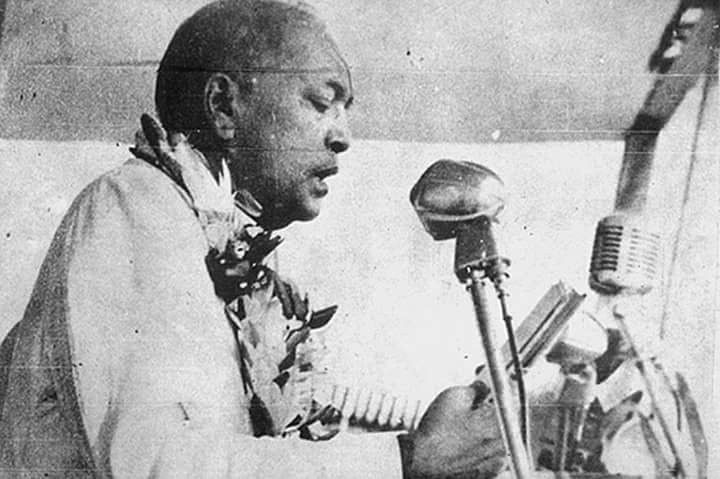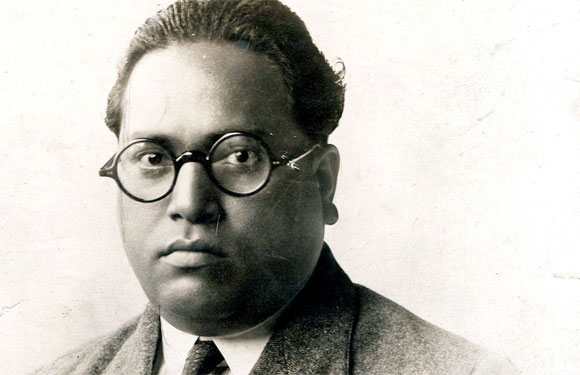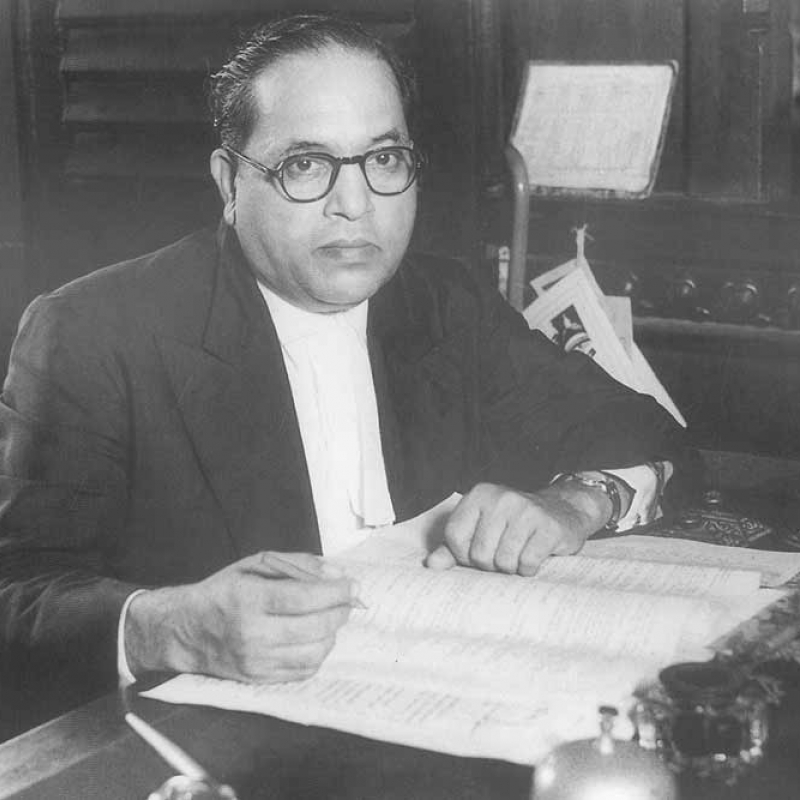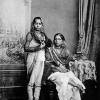Dr B.R. Ambedkar was one of the greatest Dalit leaders who not only wrote about caste but also led by example, converting to Buddhism on October 14, 1956. According to Ambedkar, the Dalits could not escape the caste system unless they abandoned Hinduism and became a part of 'another community which does not recognize caste'. This excerpt from Manash Firaq Bhattacharjee's book 'Looking for the Nation: Towards Another Idea of India' sheds light on Ambedkar's views on caste, Hinduism and conversion. (Photo Source: Wikimedia Commons)
Ambedkar’s painstaking historical and political critique of the caste system and the origins of untouchability was witness to much of his exasperation and anguish. He was concerned about his people and considered every idea which could offer them a different destiny, away from the one forced upon them by the Hindu society. In ‘Away from the Hindus’, Ambedkar writes, ‘One way to solve the problem of the Untouchables is for them to abandon Hinduism and be converted to some other religion.’ This is a unique prescription-cum-call-to-action, this annihilation-through-conversion, where you propose to a people that they end an oppressive social structure, not by challenging, but by abandoning it. Why abandon? Ambedkar has a precise answer: ‘That Hinduism is inconsistent with the self-respect and honour of the Untouchables is the strongest ground which justifies the conversion of the Untouchables to another and nobler faith.’
But Ambedkar’s quarrel with Hinduism is not only restricted to the treatment of Untouchables. Gandhi’s response to Annihilation, which appeared in a series of articles in the Harijan (between July and August in 1936), provoked a reply from Ambedkar: ‘I am disgusted with Hindus and Hinduism…because I am convinced that they cherish wrong ideals and live a wrong social life.’ The language may resemble a moral indictment, but the emphasis is ethical. In ‘Away with the Hindus,’ Ambedkar writes, ‘Historically speaking, service to humanity is quite foreign to Hinduism and to Hindus. The Hindu religion consists primarily of rituals and observances. It is a religion of temples. Love of man has no place in it.’

Ambedkar argued for a universal ‘principle’ where the idea of life could be rid of ascriptive limitations enforced by the caste system (Photo Source: Wikimedia Commons)
Ambedkar found a lack of ethical impulses in the Hindu religion and its adherents. He raised the question, ‘[Does] Hinduism universalize the value of life without distinction?’ The idea of the universal here is not based on a categorical idea, but on an ethical principle of life. It is raised in the context of Hindu society, where life’s values are prescribed within caste distinctions. Ambedkar argues for a universal ‘principle’, where the idea of life can be rid of ascriptive limitations enforced by graded inequality. Everyone should have the equal possibility of touching a free idea of life, an idea free of meanings permanently assigned to one’s birth. If an untouchable cannot touch the idea of life that a Brahmin is privileged to, then the society they live in violates the universal principle. Ambedkar was, however, keenly alive to the aspect of difference between individual beings. In Annihilation, he made the bold assertion that ‘Plato had no perception of the uniqueness of every individual, of his incommensurability with others.’ You couldn’t ‘pigeonhole’ individual beings into classes divided according to birth by the chaturvarnya, or the caste system. To be able to live and realize one’s incommensurability, is the desirable universal principle Hindu religion falls short of by classifying people into castes.
In ‘Away from the Hindus’, we come back to the question of the name. By telling the untouchables to get away from the Hindus, Ambedkar also meant, getting ‘away from their localities’.
Soumyabrata Choudhury draws our attention to this in his provocative work, Ambedkar and Other Immortals. He makes the connection of the name, Antyaja, the original metaphor of exclusion, to that of a place or location. Ambedkar is telling the untouchables here, to dislocate, to change place, to convert. Choudhury identifies the subjective aim which Ambedkar has in mind in proposing conversion: it would help untouchables accomplish a ‘radical disinterest in Hinduism’. Ambedkar dismisses the option of what he calls ‘protective discolouration’. This included people named Chamars calling themselves Ravidas or Jatavas, or people named Dom calling themselves Shilpakars. To give themselves ‘other names’ within Hindu society doesn’t protect untouchables from being placed (and fixed) in the caste hierarchy by the sickness of Hindus. The ‘other name’ within Hindu society would fix the untouchables as other. The point was to change this.

Ambedkar felt that in order ‘to end their isolation the Untouchables must join another community which does not recognize caste' (Photo Source: Wikimedia Commons)
Ambedkar equates the idea of conversion to a revolution for the untouchables: ‘The name matters and matters a great deal. For, the name can make a revolution in the status of the Untouchables. But the name must be the name of a community outside Hinduism’. The possibility of renaming a whole people could come only from a new community. Ambedkar felt, in order ‘to end their isolation the Untouchables must join another community which does not recognize caste’. Joining another community, the untouchables not only gain a new anthropological status, but also a new ethical possibility, of becoming another.
Finally converting to Buddhism on 14 October 1956, Ambedkar spelt out his own choice of that other community.
Excerpt reproduced from Manash Firaq Bhattacharjee's Looking for the Nation: Towards Another Idea of India (Speaking Tiger Books, 2019) with the permission of the author and the publisher.












